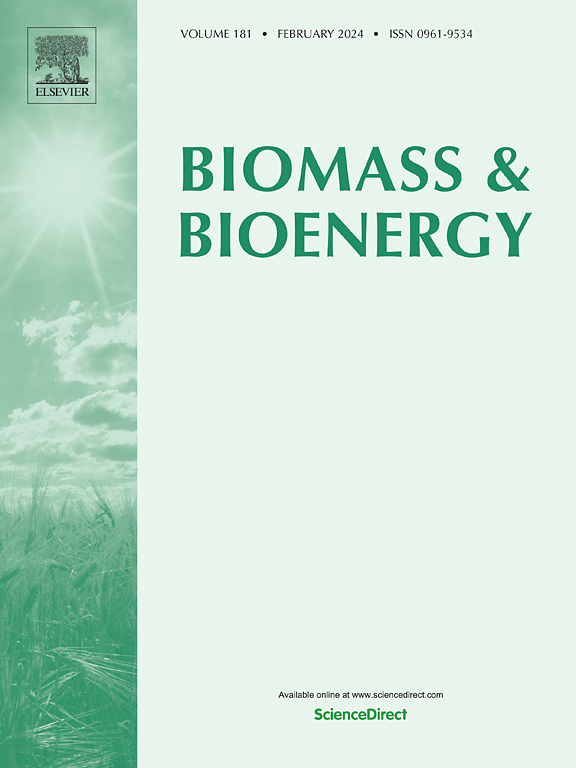Biochar in sustainable agriculture and Climate Mitigation: Mechanisms, challenges, and applications in the circular bioeconomy
IF 5.8
2区 生物学
Q1 AGRICULTURAL ENGINEERING
引用次数: 0
Abstract
Biochar, a carbon-rich material produced through the pyrolysis of biomass, has gained significant attention for its potential in sustainable agriculture, environmental management, and climate change mitigation. This review provides a comprehensive synthesis of the latest research on biochar production, characterization, and its roles in enhancing soil health and agricultural productivity, focusing on novel insights and emerging applications. Biochar improves soil structure, nutrient retention, water-holding capacity, and microbial activity, benefiting degraded soils such as acidic, sandy, and nutrient-poor soils, which are prone to poor water retention and nutrient leaching. Studies have shown that biochars produced from wood and agricultural residues are particularly effective for long-term carbon sequestration and improving soil fertility. Furthermore, biochar has demonstrated significant impacts on boosting crop yields, with some studies reporting up to a 30 % increase in yields for crops grown in nutrient-poor soils. Biochar sequesters carbon for centuries, reduces greenhouse gas emissions (e.g., nitrous oxide by up to 50 %), and mitigates water contamination by adsorbing excess nutrients and heavy metals. Despite these benefits, large-scale biochar application faces challenges, including variable effectiveness across soil types and climates, high production and transport costs, and the need for standardized production methods. This review emphasizes the integration of biochar into waste management and bioenergy systems, aligning it with the principles of a circular bioeconomy. It also underscores the importance of further research to optimize production processes, assess long-term impacts on soil health and crop productivity, and explore biochar's role in enhancing resource efficiency and addressing critical agricultural and environmental challenges.
生物炭在可持续农业和气候减缓中的作用:机制、挑战和在循环生物经济中的应用
生物炭是一种通过生物质热解产生的富含碳的材料,因其在可持续农业、环境管理和减缓气候变化方面的潜力而受到广泛关注。本文综述了生物炭的生产、表征及其在提高土壤健康和农业生产力中的作用的最新研究,重点介绍了新的见解和新兴的应用。生物炭改善了土壤结构、养分保持力、保水能力和微生物活性,有利于酸性、沙质和营养不良土壤等退化土壤,这些土壤容易出现保水能力差和养分淋失。研究表明,由木材和农业残留物产生的生物炭对长期固碳和改善土壤肥力特别有效。此外,生物炭已证明对提高作物产量有重大影响,一些研究报告称,在营养贫乏的土壤中种植的作物产量可增加30%。生物炭可以将碳封存几个世纪,减少温室气体排放(例如减少高达50%的一氧化二氮),并通过吸附过量的营养物质和重金属来减轻水污染。尽管有这些好处,大规模生物炭应用面临着挑战,包括不同土壤类型和气候的不同效果,高生产和运输成本,以及对标准化生产方法的需求。这篇综述强调将生物炭整合到废物管理和生物能源系统中,使其与循环生物经济的原则保持一致。它还强调了进一步研究以优化生产过程、评估对土壤健康和作物生产力的长期影响以及探索生物炭在提高资源效率和应对关键农业和环境挑战方面的作用的重要性。
本文章由计算机程序翻译,如有差异,请以英文原文为准。
求助全文
约1分钟内获得全文
求助全文
来源期刊

Biomass & Bioenergy
工程技术-能源与燃料
CiteScore
11.50
自引率
3.30%
发文量
258
审稿时长
60 days
期刊介绍:
Biomass & Bioenergy is an international journal publishing original research papers and short communications, review articles and case studies on biological resources, chemical and biological processes, and biomass products for new renewable sources of energy and materials.
The scope of the journal extends to the environmental, management and economic aspects of biomass and bioenergy.
Key areas covered by the journal:
• Biomass: sources, energy crop production processes, genetic improvements, composition. Please note that research on these biomass subjects must be linked directly to bioenergy generation.
• Biological Residues: residues/rests from agricultural production, forestry and plantations (palm, sugar etc), processing industries, and municipal sources (MSW). Papers on the use of biomass residues through innovative processes/technological novelty and/or consideration of feedstock/system sustainability (or unsustainability) are welcomed. However waste treatment processes and pollution control or mitigation which are only tangentially related to bioenergy are not in the scope of the journal, as they are more suited to publications in the environmental arena. Papers that describe conventional waste streams (ie well described in existing literature) that do not empirically address ''new'' added value from the process are not suitable for submission to the journal.
• Bioenergy Processes: fermentations, thermochemical conversions, liquid and gaseous fuels, and petrochemical substitutes
• Bioenergy Utilization: direct combustion, gasification, electricity production, chemical processes, and by-product remediation
• Biomass and the Environment: carbon cycle, the net energy efficiency of bioenergy systems, assessment of sustainability, and biodiversity issues.
 求助内容:
求助内容: 应助结果提醒方式:
应助结果提醒方式:


